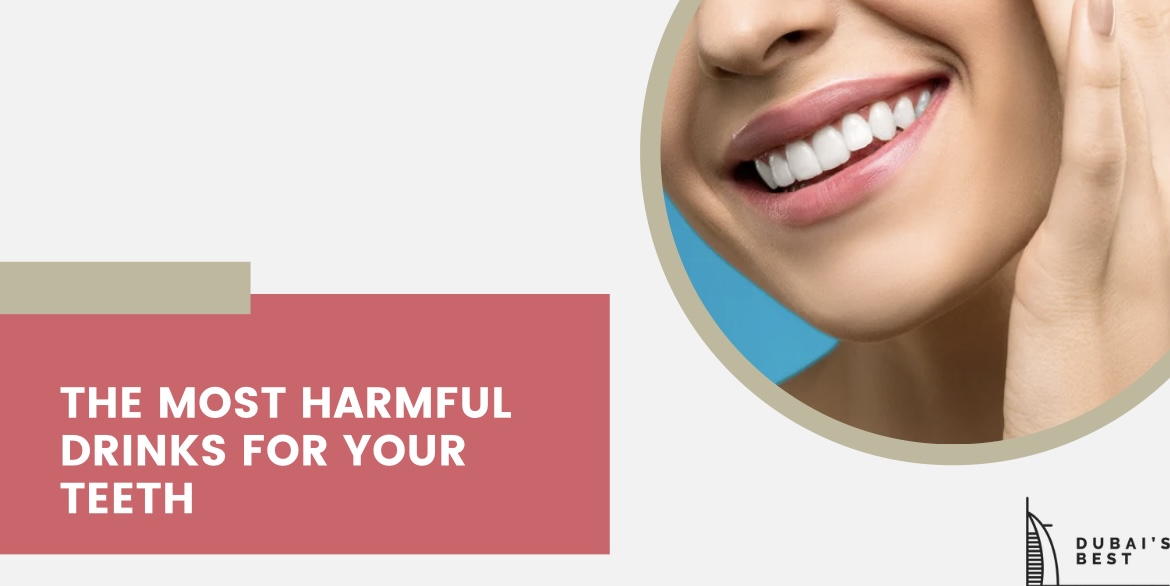The Most Harmful Drinks for Your Teeth
When it comes to your dental health, it’s not just about how you take care of your teeth but also about the beverages you consume. You might be surprised that the drinks you love so much negatively impact your teeth.
It’s a well-known fact that sugar is bad for your teeth, but what about acidic beverages you can’t live without, like coffee and soda? These are just the examples of some drinks that are culprits to your dental damage.
Aside from taking advantage of dental services regularly, it’s essential to be aware of what you put in your mouth. In the following, we’ll be listing the worst drinks for your teeth.
1. Coffee
Coffee is probably the one beverage you hope wouldn’t appear on this list, but unfortunately, it’s bad for your dental health. If you’re an avid coffee lover, you may want to find an alternative for this.
Coffee is the primary cause of yellowing teeth, which can be difficult to counter. If this is the case, you may want to take advantage of teeth whitening services.
Only a professional can help you regain your white teeth back. Even if the enamel on your teeth is the hardest substance, that doesn’t make it invincible.
Beverages like coffee can still seep through these microscopic pores, which is why you get stains on your teeth. In addition, coffee is one of the most acidic drinks, so this wears the enamel over time.
2. Tea
Since tea is another acidic drink like coffee, this is another beverage that stains your teeth. If you’re an avid tea and coffee drinker, we suggest that you visit the dentist regularly, every three to six months.
This should be an integral part of your self-care if you’re not visiting the dentist already. Tannins found in both coffee and tea can lead to stains on your teeth, especially black teas.
Particular black teas cause more teeth stains than coffee. Green tea may leave a dull and gray stain on your teeth, whereas you can expect black tea to leave yellowish stains.
This goes even for teas considered soothing, such as chamomile and hibiscus. However, you may add cream or milk to lessen the acidity and staining on your teeth.
3. Energy drinks
Energy drinks are comprised of mostly sugar and acid, which is a combination of teeth-staining agents. Not only is taking energy drinks every day harmful to your general health, but this goes even for your dental health.
Although this goes for anyone’s teeth, energy drinks do even more harm for anyone with orthodontic devices such as dental braces and implants. Fixed braces use brackets and wires to realign your teeth, and any food and drink you consume can be stuck to them.
4. Sodas and soft drinks
Like energy drinks, sodas and soft drinks are other beverages that can cause stains on your teeth. Not to mention, they can also cause oral cavities and encourage harmful bacteria in your mouth.
You may think that everyone gets cavities, so it’s okay to leave them untreated. However, the reason why dentists suggest getting it treated right away is that cavities can get larger and affect deeper areas of your teeth.
They lead to unbearable toothaches, infections, and even something as drastic as tooth loss. If this is the case, you’ll need to get dental implants.
So you may want to reduce your regular consumption of sodas to help your dental health.
5. Fruit juices
Orange juice is seen as a typical addition to breakfast meals worldwide, but it’s not exactly healthy. Studies have significantly shown that the consumption of fruit juices can reduce the hardness of enamel by 84%.
But of course, drinking juice is okay from time to time. Also, it would significantly help if you drink your juice faster, as this can protect your teeth better.
While these drinks taste good and energize and refresh you, it’s ideal to stick to water if you can.
If you want to fix your smile, visit any professional providing cosmetic dental services. Don’t forget to bring your insurance with you when going for any dental services.
Most importantly, remember to stick to healthy dental habits, and your teeth and gums should be all fine.
It’s important to start these habits early especially in your children. Don’t wait until your next pediatrician or dentist visit to get started.

